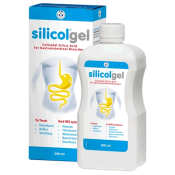What are probiotics?
Probiotics are live cultures of strains of good bacteria similar to those found in the intestine, they are often found in food that we eat.
Probiotics support the balance of bacteria in the gut which then, in turn, helps support the absorption of food. They can be used to treat irritable bowel syndrome, inflammatory bowel disease, and diarrhoea. (1) There are many different types of probiotics that have different benefits, most come from two groups – lactobacillus or bifidobacterium.
Lactobacillus is more commonly found in the small intestine. It is perhaps the most common probiotic and can be found in fermented foods like yoghurt. Different strains of lactobacillus can work to ease diarrhoea and help people who can’t digest lactose (the sugar in milk).
Bifidobacterium, is more often found in the large intestine and is also found in some dairy products. It is thought to help ease symptoms of IBS and other digestive conditions.
Can probiotics help IBS?
Probiotics are becoming an important part of daily diet as the gastrointestinal benefits are becoming better known. The increasing levels of research and clinical trials investigating the effects of probiotics on IBS symptoms suggest that probiotics can help with IBS.
However, IBS is most likely caused by different reasons in different people, which could be why the research results of using probiotics for IBS are mixed.
Although the exact ways probiotics help in the treatment of IBS are unknown, they are thought to play a role in balancing and altering the levels of bacteria that already live in our gut. (2)
The British Dietetic Association (3) and the National Institute for Health and Care Excellence (NICE) (4) recommend trying the same probiotic for a period of 4 weeks to see if it has any effect on symptoms. If not, they suggest trying a different strain of the bacteria.
What about prebiotics?
If we have probiotics to help balance our gut bacteria, then why do we need prebiotics? Prebiotics are a type of in-digestible plant fibre that lives inside the large intestine. Although the body does not digest this fibre, instead, they improve the internal environment of our gut and stimulate the growth of our friendly bacteria (probiotics). In other words, prebiotics set out a nice, cosy spread to make our good bacteria feel at home!
Which prebiotic should I use?
I’d recommend starting with a gentle, prebiotic such as a source of L+ lactic acid. See, unfriendly bacteria can’t survive in a gut full of L+ lactic acid; it keeps the acidity of your gut at the right level allowing probiotics to grow.
Diet and Nutrition
Although supplements are a great way to get the bacteria we need directly, prebiotics can also be obtained from our diet. Prebiotics can be found in plant-based foods like asparagus, garlic, leeks, onions, and bananas. You also can sources of L+ lactic acid into fruit smoothies or incorporate it into recipes like our tasty fermented tomato ketchup!
Probiotics are also available through our diet, they can be found in fermented foods like yoghurt and cheese which are rich in natural bacteria.
Which probiotic should I use for IBS?
There are loads of probiotics out there, Optibac, for example, are a professional brand have a great range of natural probiotics that have been clinically researched and target IBS symptoms.
For diarrhoea (IBS-D) try Saccharomyces boulardii
Saccharomyces boulardii is a natural yeast, originally extracted from lychee fruit. It is the only yeast that has been formally recognised as a probiotic. In clinical research saccharomyces boulardii has been shown to reduce antibiotic-associated diarrhoea (AAD), chronic diarrhoea, traveller’s diarrhoea, as well as IBS-D. (5)
For constipation (IBS-C) try Bifidobacteria & fibre
Bifidobacteria and fibre has been shown to support general gut health, relieve constipation, and promote regular, well-formed bowel movements. This probiotic contains Bifidobacerium lactis BB-12 and is thought to be the most widely researched strain of Bifidobacteria. It is able to survive the high acidity of the stomach which means it reaches the gut alive. It is also naturally high in fibre because it contains the prebiotic Fructooligosaccharides.
For bloating try One week flat
One week flat contains a probiotic strain called Lactococcus lactis Rosell-1058 which produces two specific enzymes that help with the digestion of starch and lactose. It also contains L. acidophilus Rosell-52 which can reduce the effects of stress on the digestive system.
For alternating symptoms of IBS (IBS-A) try For every day EXTRA Strength
For every day EXTRA Strength can help with alternating constipation and diarrhoea. It can relieve the general symptoms of IBS including abdominal cramps, distension, and chronic bloating. It contains two strains of probiotic Lactobacillus acidophilus NCFM and Bifidobacterium lactis Bi-07 which have been clinically shown to reduce bloating and abdominal distension.(6)
A healthy internal environment
Research is still being carried out on the use of probiotics as a treatment to help improve IBS symptoms. While the results of research are promising, experts are still befuddled as to how probiotics actually work to help IBS – but it seems the balance of bacteria in our gut is key!
Eating a balanced diet rich in fermented foods like yoghurt, as well as taking a prebiotic, such as Molkosan, will help to create a healthy environment and give the good bacteria the best opportunity to grow.








